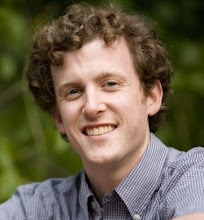- "[In talking about questions of worship and being a welcoming church], we need to start with theology, not sociology. We are called to be a worshiping community that reflects the fullness of the kingdom of God. From that starting point, you get a very different set of questions."
- "We don't come to church to be told that we're sinners and that we're damned if we don't change. We come to be intellectually uplifted."
The comment about theology vs. sociology occurred first, and came in response to the sorts of questions I referenced in my post last week: "What kinds of music will appeal to people who live closer to the church?" "Will people leave the congregation if the choir sings fewer traditional choral pieces?" They were aesthetic questions. Twenty minutes later came the second statement, which dealt not with the form of worship but with the content of the proclamation. Yet this is still, at its root, a sociological statement. As long as you preach a word that invites people into an open-ended spiritual journey, rather than delivering the sometimes unpleasant but non-negotiable truth, you will attract congregants who presume that each person is entitled to his or her own unmolested opinions, but you will repel people who think any other way. You'll end up with a sanctuary full of liberal thinkers, which might imperil the Gospel every bit as much as other types of homogeneity do.
I didn't mean to dwell so long on the second of these statements. I really like this parish and I know I will learn a lot from the people here -- and their openness is part of their genuine desire to practice hospitality as faithful disciples. I think the key insight I gained tonight is that we must think of that kind of openness just like we need to think about music or liturgy: in terms of its theological warrants, not in terms of its resonance with a particular audience.

No comments:
Post a Comment